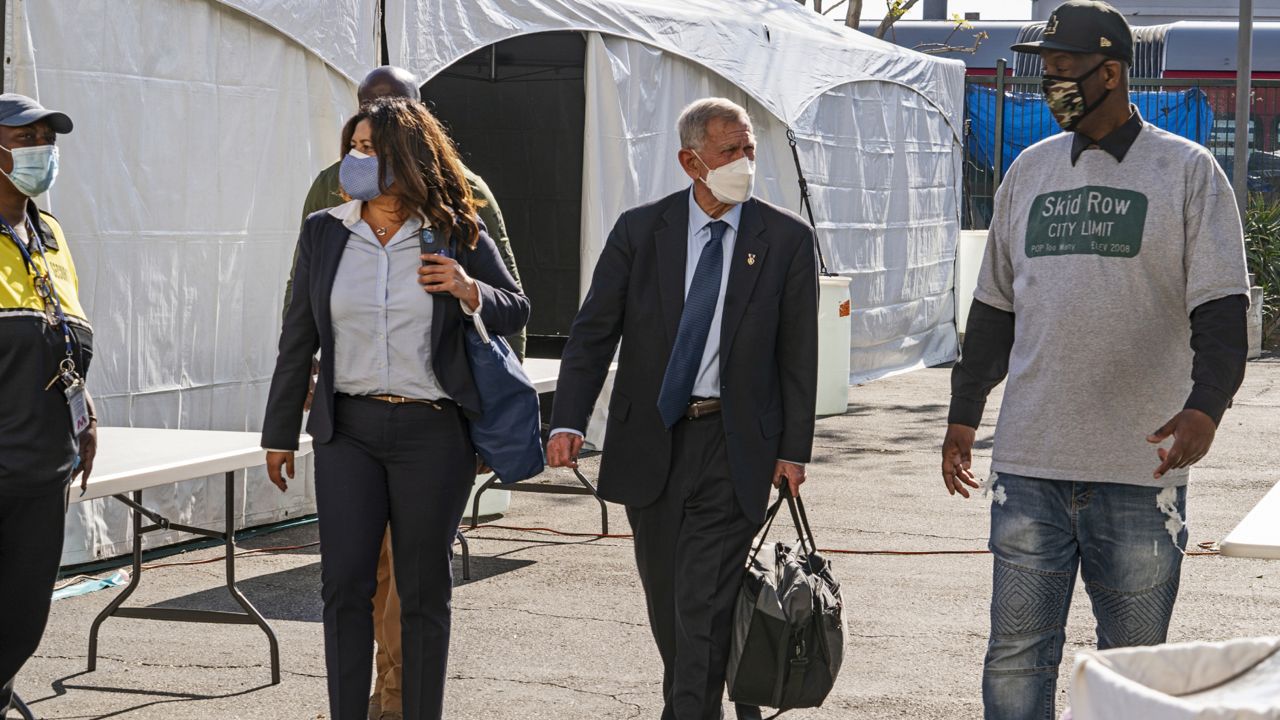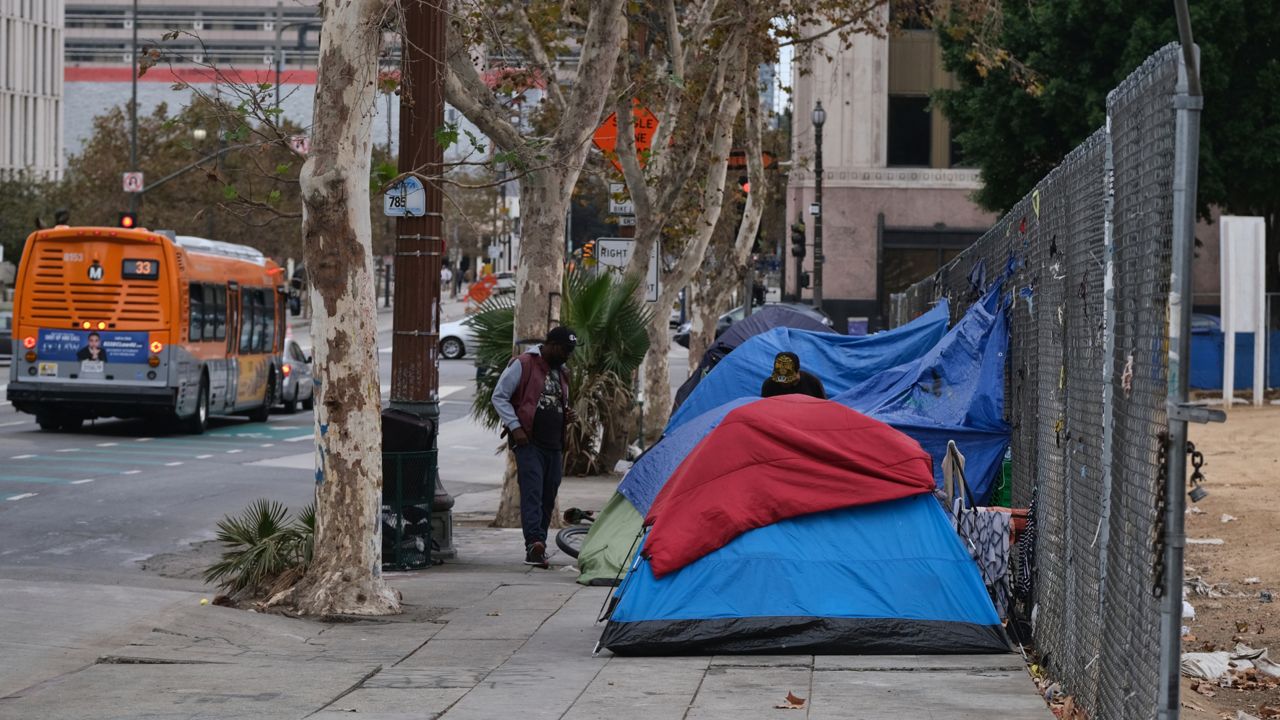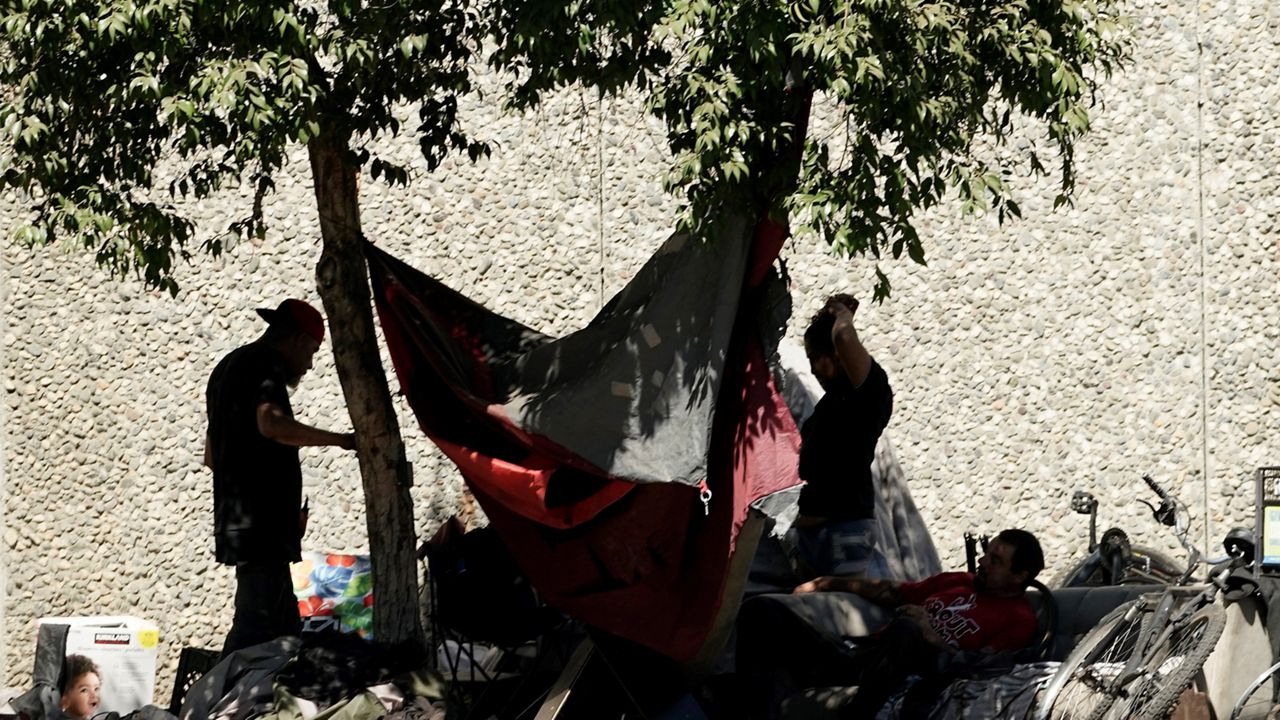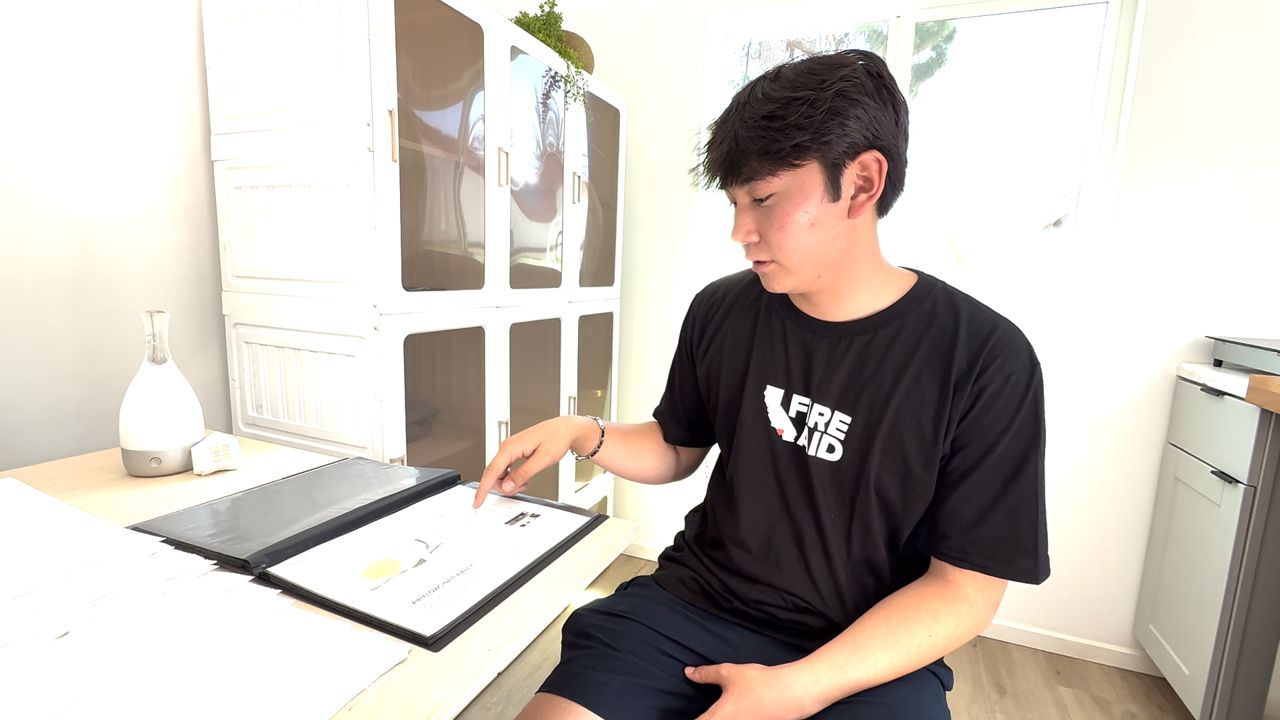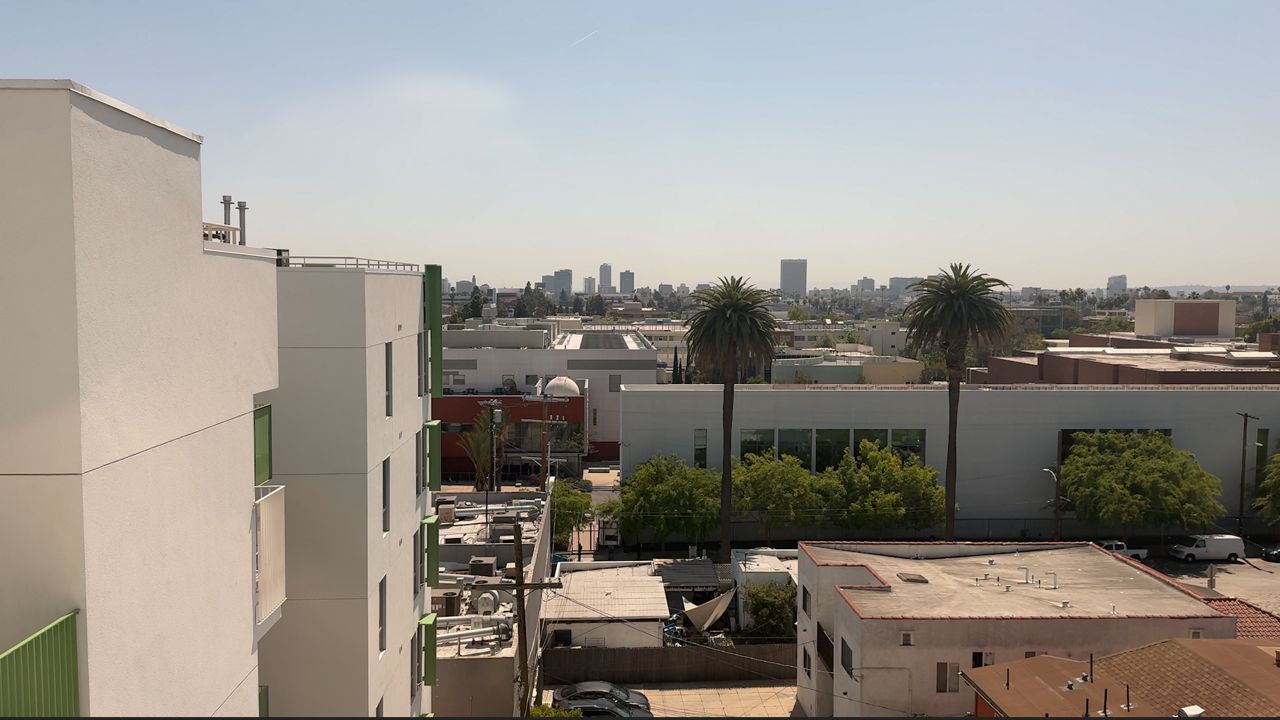LOS ANGELES (CNS) — The federal judge moderating a closely watched lawsuit dealing with the homelessness crisis heard testimony Thursday from Los Angeles county and city officials and homeless advocates during proceedings that touched on the systemic racism the jurist believes created and sustains the sprawling Skid Row area.
During the unusual 4 1/2-hour hearing, U.S. District Judge David O. Carter called upon, among others, Pastor Stephen "Cue" Jn-Marie, who holds worship meetings on the streets of downtown Los Angeles.
"It doesn't take a rocket scientist to know that institutional racism exits," the evangelist said. "Look at how many people are getting pushed out of housing each and every day. I didn't come to preach today, but I will."
Referring to the local government officials in the courtroom, the pastor said, "They refuse to house people by any means necessary."
The judge urged city and county attorneys to begin serious settlement talks to resolve the year-old lawsuit brought by the LA Alliance for Human Rights, a coalition of downtown property and business owners and residents seeking to compel officials to move quickly to bring thousands of indigent people indoors.
Carter said destitute people must be moved off the streets and away from dangerous and unsanitary conditions, "and that's something that should've been done long ago."
He added that he was "absolutely terrified" of what the forthcoming rains could bring to the unhoused on Skid Row, which he described as "beyond any civilized society" and even worse than the refugee camps of Afghanistan and Syria.
Although homelessness has spread throughout the area, "Skid Row is the epicenter, but the whole city is crying for help right now," the judge said.
Carter chastised city and county lawyers for apparently not reading — and taking seriously — his written orders in the case, and for allowing momentum in the lawsuit to lag.
"The inertia that's occurred is causing untold loss of life," he said.
City Councilman Kevin de Leon — whose district includes Skid Row and who walked its streets with the judge during the last torrential rainstorm — said that "decades of willful ignorance" have "led us to this moment."
Calling the district both an "open-air prison" and a humanitarian crisis, de Leon said that if Los Angeles residents had been displaced by a natural disaster such as an earthquake, "FEMA would be moving heaven and earth" to help. Suggesting that a racist system created Skid Row and allowed it to grow unchecked, the councilman said that "only a collective effort can solve it."
The judge then showed a series of slides documenting life on the streets, including scenes of homeless encampments blocking entire city sidewalks, rats next to tents, single women camping together in front of a downtown shelter for protection, and the sick and mentally ill unprotected during the storm.
Carter stressed that the oft-repeated phrase "breaking the cycle" of poverty can mean a room simply for a day or two.
"When you talk to these women individually, they want a room," he said, adding that the slides illustrate why he has made help for the roughly 600 unhoused single women on Skid Row a priority.
Skip Miller, the county's outside counsel, said that many of LA Alliance's claims in its lawsuit against the city and county are not backed up by facts. As for not doing enough to help, Miller said the county has 11 departments working on homeless issues.
"We don't need a lawsuit to tell us to deliver services to Skid Row," he said. "Litigation doesn't help people who need help."
The attorney said Los Angeles County is willing to begin settlement talks to resolve the suit and has made overtures to the city to come to some agreement between the two entities. Bureaucratic snarls between the two are among reasons the lawsuit stalled.
"I believe it's a lot better than litigating," Miller said.
The judge questioned whether the county and city were serious about working out their problems and told lawyers that he is available at any time to discuss the situation.
"We're excited about the possibilities," said Scott Marcus, a city attorney.
Carter urged the parties to begin talks as soon as possible.
"If it doesn't happen now, we're going to be reading about this 10 years from now," the judge said.
However, he said, "I'm concerned that what is being presented today by the city and county is fiction."
On Wednesday, in the first of the two back-to-back hearings in the case, Carter postponed ruling on whether to reinstate his order compelling authorities to move thousands of homeless people away from freeways and ramps because of such deadly hazards as pollutants, passing cars and potential earthquakes.
The hearing examined agreements between the city and county to provide shelter to individuals camping within 500 feet of freeway overpasses and underpasses, as well as indigent people over age 65.
The preliminary injunction was placed on hold to allow the city and county to develop their own plan to provide alternative shelter to 6,000 to 7,000 people living near area highways. The judge set another hearing for Aug. 26, at which time the court will hear testimony regarding progress made toward housing those living in freeway encampments.
In April, Carter issued an order that the city and county must offer housing to the entire homeless population of Skid Row by the middle of October. A federal appeals court put an administrative hold on the judge's decree pending the conclusion of Thursday's hearing. Carter's pending order set a timetable for offers of shelter to be made to between 2,000 and 4,000 homeless people living on the streets of Skid Row. The 50-block area just blocks from Staples Center contains one of the largest populations of indigent people in the nation.






